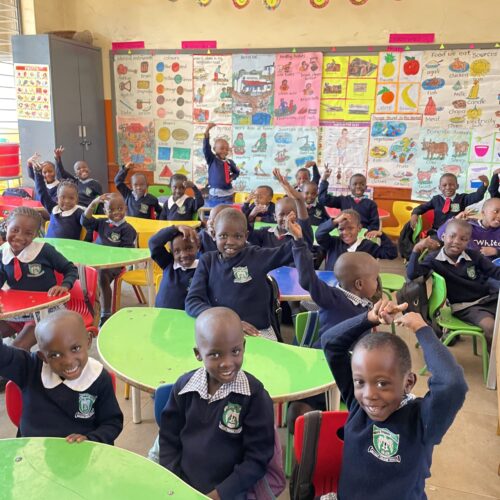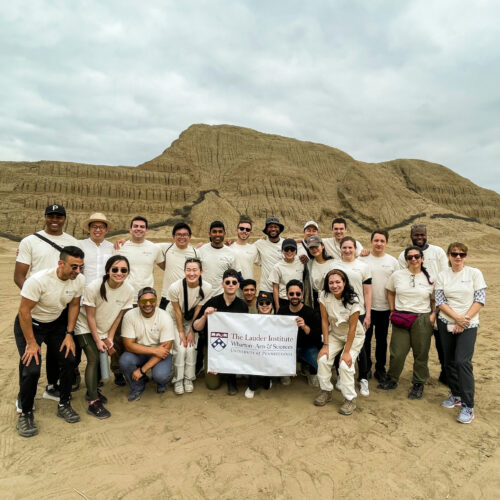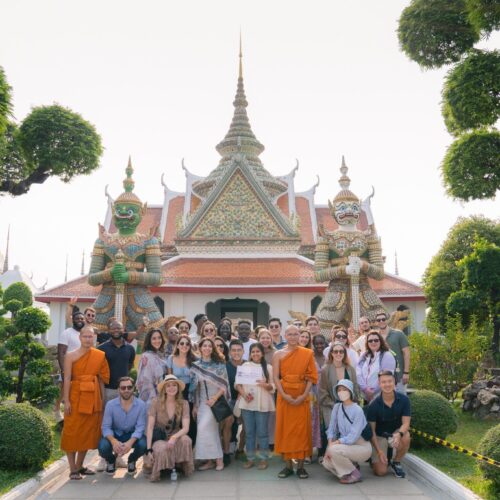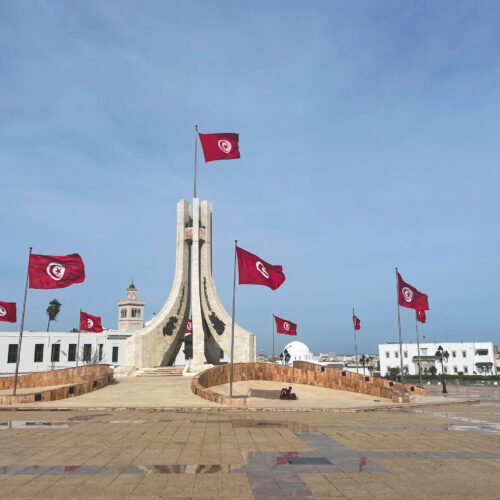In Spring 2023, The Lauder Institute held four Lauder Intercultural Ventures (LIVs) in Kenya, Peru, Thailand, and Tunisia. LIVs are an intrinsic part of the Lauder 2-year International Studies degree program. Led by a faculty expert, these week-long cultural immersions in countries around the world take place every Spring and Fall, with students required to complete two LIVs by the time they graduate. Each LIV focuses on a theme related to the location’s historical, social, political, economic, or environmental context. Through academic assignments related to the location’s theme, students reflect on the sites visited as well as their meetings with local experts and leaders to develop intercultural awareness and a global mindset. Learn about our Spring LIVs below.

Kenya
EDUCATION FOR TRANSFORMATION, TRANSFORMING EDUCATION
This LIV explored transformational education in Kenya, where calls for changes in education have been a stable part of post-colonial history. Various stakeholders and communities in Kenya frequently debate the extent to which education enables upward socioeconomic mobility, and advances equity. Despite this debate, Kenya has received accolades from the World Bank and UNESCO for its progress towards increasing access to education and school enrollment rates. The LIV examined how politics, financing, sponsorship, philanthropy, values, staffing, and questions of equity have influenced educational reform in Kenya.
Participants met with key education experts and transformative leaders to learn about innovative strategies that are advancing formal education as well as learning in the areas of youth and gender empowerment, natural resource and environmental conservation, democracy, and human rights.

Peru
GLOBAL HERITAGE, DESERT CITIES AND LIVING LEGACIES
Peru boasts one of the greatest archaeological and heritage landscapes in the world. This LIV focused on diverse historic sites, examining issues of tourism, environment, and development, within the context of how UNESCO’s World Heritage program, Peru’s own Ministry of Culture, heritage NGOs, and community-driven initiatives are crafting Peru’s national image as a major heritage destination.
The LIV was based in the capital Lima moving north to Chiclayo, the ancient Moche heartland. In Lima, students visited the Archaeological Sanctuary of Pachacamac, the Larco Museum, and De la Puente’s colonial mansion. The group then followed the Moche Route, beginning in the city of Trujillo. Other sites explored included Chan Chan, Túcume, Señor de Sipán , El Brujo, the pyramids of the Sun and Moon, and Callao. The LIV was led by Penn PIK Professor, Lynn Meskell, an expert in anthropology, archaeological ethics, and global heritage.

Thailand
BUDDHIST MATERIAL CULTURE AND MAGIC
This LIV provided students with an alternative perspective to pop-cultural stereotypes about Buddhism by engaging them with Buddhist material culture in Thailand. Popular references to Buddhism perpetuate curated ideals of mindfulness, non-attachment, “emptiness”, minimalism, and disdain for material goods and consumerism. However, these assumptions are true for only a select number of Buddhist schools.
Students observed how Buddhism in Thailand can be a philosophy, a religion, and a way of life, and explored how the material and ritual aspects of Buddhism (statues, amulets, talismans, yantras, tattoos and magical diagrams) are an integral part of everyday life.
The geographic focus of the LIV was situated in the capital region of Bangkok. The LIV included a guided tour of an amulet market and the Buddhist products district, temple visits, and meetings with guest lecturers and monks. Students also participated in a one-day meditation retreat, to juxtapose the material culture with the Buddhist soteriological goal.

Tunisia
INSIGHTS INTO THE ARAB SPRING
When a street vendor in southwestern Tunisia immolated himself in December 2010 to protest against the harsh conditions of his life and the indifference of the authorities, he inadvertently ignited a powder keg of discontent that had been building up for several months. The conflagration of protests quickly spread throughout the country, leading to the fall of the Ben Ali regime. When other peoples of the region saw Tunisians topple their dictatorship, they were inspired to rise against their own autocratic governments.
This wave of upheavals, known as the ‘Arab Spring’, quickly spread throughout the MENA region, including Egypt, Syria, Yemen, Bahrain, Libya, Morocco and Jordan. Tunisia, the cradle of the Arab Spring, presented an ideal vantage point for this LIV to analyze the MENA region after twelve years of revolution, and to explore the following questions: Is the Mena region experiencing revolution fatigue? What are the implications of the new “New World Order” on MENA democratic transitions? What is the role of external actors and stakeholders? and Is democratic transition possible without economic decline?



